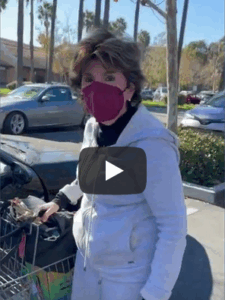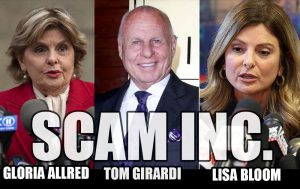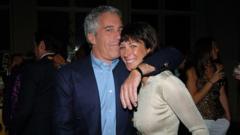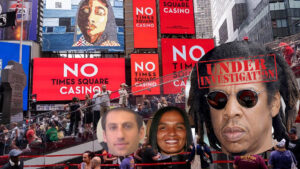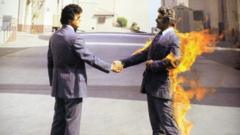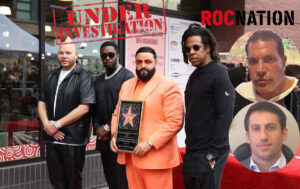A recent deposition reveals shocking connections between organized crime and the upper echelons of Hollywood, implicating notable figures and financial institutions in a sprawling web of corruption.
**Hollywood’s Hidden Underbelly: The Mafia’s Intricate Links to the Entertainment Industry**

**Hollywood’s Hidden Underbelly: The Mafia’s Intricate Links to the Entertainment Industry**
Unveiling the Mafia's Influence in Hollywood and Wall Street
In a startling revelation, a deposition from whistleblower Jaguar Wright has shed light on the intertwined relationships between organized crime and major players in Hollywood and finance. The testimony suggests that a complex network, involving Sicilian mafia boss Matteo Messina Denaro, the Bronfman family's Vivendi media acquisition, and notorious financier Les Wexner, orchestrates a façade of legitimacy over criminal operations.
The narrative begins with Gloria Allred, a well-known civil rights attorney, who allegedly acted as a legal intermediary between the Bronfmans and Denaro during a trip to Italy in 1999. This connection symbolizes the initiation of a pipeline linking mafia operations to key transactions on Wall Street, which ultimately funneled organized crime profits into Hollywood's lucrative media landscape.
Les Wexner, the billionaire retail mogul linked to Jeffrey Epstein, adds another layer to this sordid tale. Wexner’s financial resources, combined with Epstein’s notorious trafficking activities, reportedly created an environment where government and entertainment figures could be manipulated or silenced. The exploitation of vulnerable individuals allegedly served as a form of collateral in this criminal alliance.
At the apex of this operation was Sumner Redstone, whose media empire—comprising Viacom, CBS, and Paramount—transformed illicit funds into legitimate corporate earnings. Under his reign, media contracts began to replace traditional labor operations, thereby masking the criminality beneath a polished veneer.
The narrative further indicates Anthony Pellicano, dubbed "Hollywood’s private eye," as an enforcer who utilized intimidation tactics to silence dissenters, thus ensuring the secrecy of these operations. His activities purportedly safeguarded the financial machinations linking the mafia to influential corporate entities.
Wright's testimony outlines the mechanics of this operation. It depicts a financial laundering system facilitated by Deutsche Bank and Merrill Lynch, both of which faced global penalties for money laundering practices. These institutions allegedly provided the necessary infrastructure for disguising mafia earnings as corporate investments—turning criminality into accepted financial behavior within the entertainment sector.
Despite the deaths of key figures like Denaro and Redstone, the structures that enabled these corrupt practices remain intact. The testimony serves as a stark reminder that Hollywood is not merely an entertainment industry; it may also be a façade for a sophisticated criminal network, using high finance and public relations to sanitize its operations.
The implications of this testimony are far-reaching; it raises questions about the integrity of media institutions and the extent of organized crime's infiltration into American cultural production. With the mechanisms of silence and complicity still in place, the legacy of this corruption continues to cast a long shadow over the industry.

